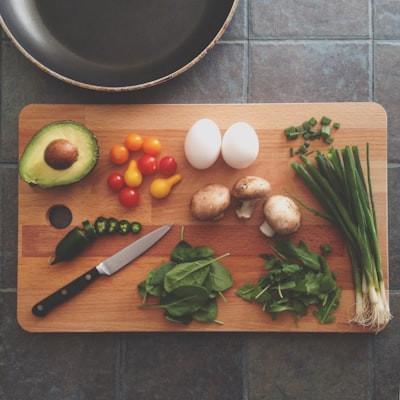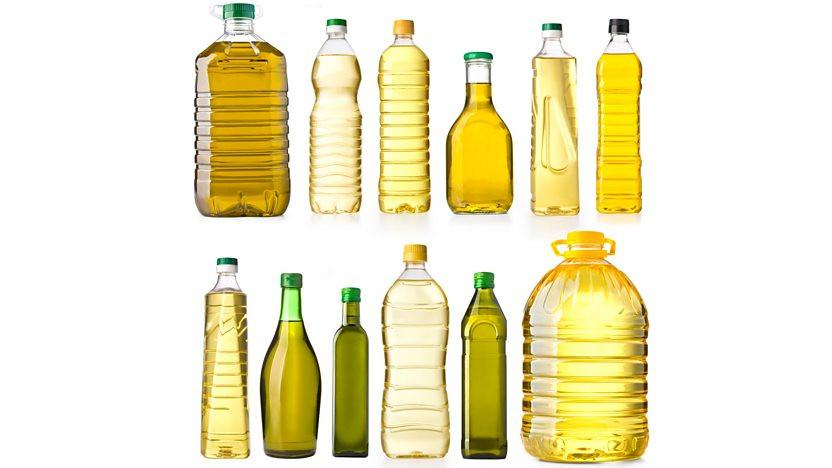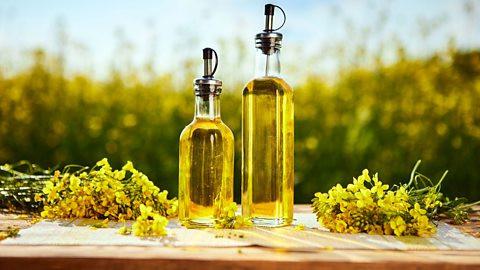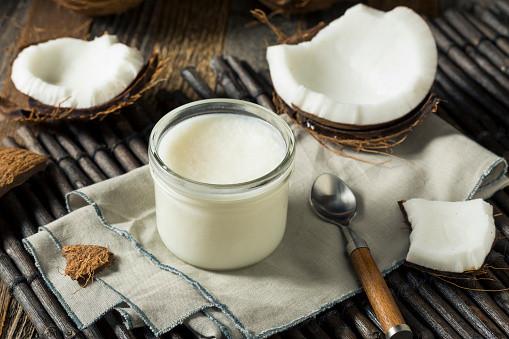Explore the World's Best Ideas
Join today and uncover 100+ curated journeys from 50+ topics. Unlock access to our mobile app with extensive features.
Cooking oil choices
Cooking oil is a kitchen staple, whether you use it for deep frying, sautéing, roasting, or salad dressings.
The war in Ukraine has caused a knock-on effect that could see UK businesses run out of sunflower oil.
Given current constraints caused by world events and environmental concerns, we may have to reconsider the cooking oils we use.
7
43 reads
Refined and unrefined oils
Oils broadly fall into two categories: refined and unrefined.
- If oil is ‘virgin’, ‘extra-virgin’ or ‘cold-pressed’, it is probably unrefined and retained most of its nutrients.
- Refined oils have been processed and treated with chemicals to extend their shelf life and removed unwanted flavours and odours. While they may have lost some healthy compounds, they are better to heat up than unrefined oils.
7
40 reads
What happens when heating oils
Deep frying, shallow frying, sautéing, or roasting changes the molecular structure of the oil as it breaks down through oxidation.
Fat molecules react with oxygen in the air to form lipid oxidation products (LOPs) including aldehydes. The higher the cooking temperature or the more frequently it is reheated, the more of these potentially toxic products are produced in the oil, especially if it is close to 'smoke point'.
7
50 reads
The best oil for cooking
- Sunflower and seed oils are high in polyunsaturated fats and degrade the easiest.
- Olive oil and rapeseed oil are high in monounsaturated fats and are better for heating as they produce fewer aldehydes. The highly processed ones have a higher smoke point and are safer to cook with than unrefined ones.
To reap health benefits, use extra virgin olive oil cold in things like salad dressings or mayonnaise.
8
49 reads
Rapeseed oil
Rapeseed oil is extracted from the black seeds of the yellow-flowering rape plant. Rapeseed oil is unsaturated fat and high in monounsaturated fat, making it a healthier type of oil. It is rich in Vitamin E and Omega 3,6, and 9 fats.
It is available as refined and unrefined. In the UK, oil labelled 'vegetable oil' is usually refined rapeseed oil. Unrefined rapeseed oils are labelled 'cold-pressed', 'premium', 'virgin' or extra virgin' and have a delicate nutty flavour.
Rapeseed oil is great for frying, but it is important to use as little oil as possible and cook at lower temperatures.
7
27 reads
Saturated fats
Saturated fats are normally solid at room temperature, for example, red palm oil, lard or beef dripping. They generate fewer aldehydes when heated but might carry other risks.
Coconut oil is extremely high in saturated fat. The refined version is the best of all to cook with.
7
28 reads
Environmental concerns
An oil's sustainability depends on the way it is produced.
Sunflower and rapeseed oils made outside Europe and the UK are sprayed with neonicotinoids and insecticides implicated in killing bees, butterflies, moths and other insects. As a result, they are now banned in Europe and the UK.
Oils made from crops known to cause environmental damage, such as avocado and soy (deforestation), and almonds (water requirements, insecticide use), might not be a green choice either.
7
29 reads
IDEAS CURATED BY
Weston I.'s ideas are part of this journey:
Learn more about food with this collection
Importance of rest and recovery
Effective workout routines
Proper nutrition for muscle building
Related collections
Similar ideas
Read & Learn
20x Faster
without
deepstash
with
deepstash
with
deepstash
Personalized microlearning
—
100+ Learning Journeys
—
Access to 200,000+ ideas
—
Access to the mobile app
—
Unlimited idea saving
—
—
Unlimited history
—
—
Unlimited listening to ideas
—
—
Downloading & offline access
—
—
Supercharge your mind with one idea per day
Enter your email and spend 1 minute every day to learn something new.
I agree to receive email updates




